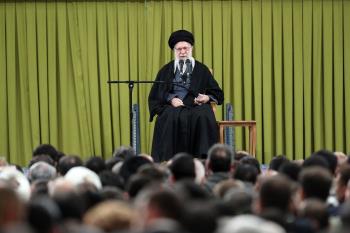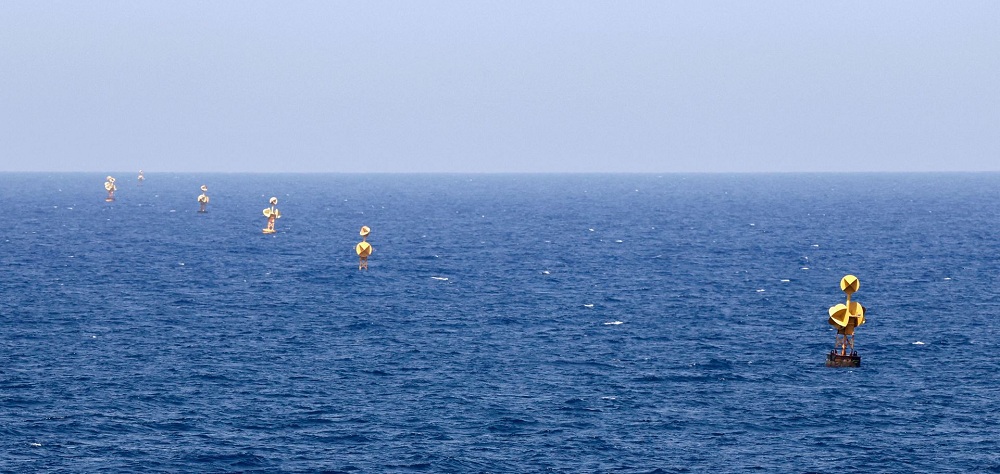Alwaght- Lebanon and the Israeli regime have been engaged in sea border dispute settlement talks since October 2020. Beirut is at loggerheads with Tel Aviv over an area of around 860 square kilometers. Dividing this area in 10 blocks makes Block 9 — lines 29 and 23— the main border dispute point, with each side claiming it as own territory. They started talks two years ago with the American mediation and ultimately the Lebanese side under an agreement retreated from maritime border from Line 23 and Line 29.
Beirut-Tel Aviv border dispute in the sea
The major border dispute between Lebanon and the Israeli regime is in Block 9 in an 860-square-kilometer offshore area that is oil and gas-rich. The disputed maritime borders are highly important to both sides because of their oil resources, and using these resources can provide potentials for Lebanese economic independence and debt and unemployment cut. The negotiations were hosted by UNIFIL, a UN peace-keeping mission, at its headquarters in Naqoura in southern Lebanon. They were halted in May 2021, however. Held in four rounds, they made no progress up to February 2020.
Controversial Lebanese retreat from Line 23 and Line 29
As part of mediation to settle the border dispute, the US representative Amos Hochestein visited Lebanon on February 8 to discuss resumption of the talks with Beirut officials.
"We have to get to the point where the two sides decide they want a solution, which is why I came here last November, I went to Tel Aviv and Jerusalem, and now I'm back to see if the two sides want an agreement," he told Lebanese MTV broadcaster, adding: "Today we have bridged the gaps in demarcation and it is possible to reach an agreement."
Following this trip, word of Lebanon's withdrawal of claims on the Line 23 and Line 29 spread, feeding speculations that the move would pave the way for completion of the negotiations.
Commenting on President Michel Aoun's stance on the concession, Lebanon's Foreign Minister Abdullah Blu Habib in an interview with Al-Jumeirah newspaper said that Line 23 is what realizes Lebanese interests but clinging to Line 29 does not bear any fruits.
Bassam Yasin, the chief Lebanese negotiator, was another Lebanese official to comment on the talks. He said: "The Lebanese side talks with Israel regarding the demarcation of maritime borders within the framework of international law. These negotiations are conducted in accordance with international law, the 1949 ceasefire agreement between Lebanon and Israel, and the 1923 Paulet-Newcombe Agreement."
Hezbollah chief Sayyed Hassan Nasrallah also commented. He held that Hezbollah does not interfere in the negotiations as a resistance movement because "there is no such thing as Israel for us. On the maritime borders demarcation, the decision is for the Lebanese government and we as a resistance commit to the borders approved and decided by the government institutions."
The goal behind sea border agreement
Resolving the maritime border dispute comes at a time when the political and economic situation in Lebanon is critical and the country, which is facing difficulties as a result of US energy sanctions, is increasingly emphasizing the political nature of the talks with the US envoy presence. On the one hand, the US and Israeli regime are trying to link the talks to the Arab agreements on the normalization of relations with Tel Aviv, and on the other hand, in the run-up to the Lebanese elections, pursue their political interests. Also, the goal of the Israelis and the Prime Minister Neftali Bennett government in trying to reach an agreement with Lebanon is to replace Iran as an energy exporter to Lebanon and limit the Lebanese market to Israeli energy.
Additionally, the US links exception of Lebanon from anti-Syrian sanctions, known as Caesar Act, to a border deal with Tel Aviv. Monir al-Rabee, a Lebanese analyst told Abadolu news agency that "the US envoy, Amos Hochstein, in all ways conveyed the clear position to the Lebanese authorities that the demarcation of the border would facilitate the transfer of Egyptian gas and Jordanian electricity to Lebanon."
Al-Rabee, pointing to the Lebanese concession, continued that there may be political calculations behind this to conclude the demarcation faster, especially as the country is heading to the parliamentary and presidential elections. President Aoun intends to conclude drawing of the borders by his presidency term end in October 2022 and declare gas and oil exploration operations.
"Aoun has another care and it is lifting the sanctions on his son-in-law Gebran Bassil and returning some strong play cards in the run-up to elections," he went on.



























